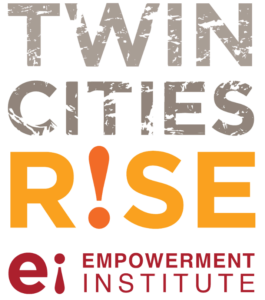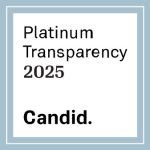Twin Cities R!SE (TCR) participants now receive financial literacy training from an award winning certified financial trainer, as a part of their career readiness training. Tonia Brinston, who has also served as a Career Coach with Twin Cities R!SE for the past two years, leads bimonthly financial workshops for participants and program alumni. Topics for the workshops include; credit repair, budgeting, home buying, and entrepreneurship. Tonia was introduced to TCR through her former employer, Lutheran Social Services (LSS). During her time employed with LSS, Tonia occasionally taught the “Four Cornerstones of Financial Literacy” to participants of TCR and other non-profits.
Tell us about your position as a Career Coach.
As a Coach, I assist participants in overcoming barriers that may hinder them from employment. We coach them through interview prep, whether that\’s elevator speech, Star stories, clothing for interviews, childcare, we talk about internships, and whatever is needed to help them obtain meaningful employment. We as coaches, are a part of their journey.
In December of 2020, Tonia started her business, SLAP (Sounds Like A Plan) Consulting to cultivate financial capabilities, create lasting financial wellness, build generational wealth, and grow social capitol in youth ages 16-24. Tonia is a North Minneapolis resident and has worked with the Black Womens’ Wealth Alliance for several years as an educator, coach, and advisory committee member. Her business is also contracted with the University of Minnesota. This part of Tonia’s work is focusing on the economic disparities facing African American families on the north side of Minneapolis and addressing the historical trauma and ambiguous loss as it relates to financial wellness.
What prompted you to create your consulting business?
Well, I\’ve walked my own walk, in creating personal debt and eliminating it. The knowledge that I obtained in going through that process, as well as the process in becoming a homeowner, was very valuable to me and greatly needed in my community.
What do you see in terms of the financial literacy of participants at Twin Cities R!SE?
There is a lot of engagement around improving credit scores. Most participants are not yet very knowledgeable in that area. I teach them budgeting and how to close their money leaks (those unconscious money spending habits). This is where I get those aha moments from participants, because when we do the math, and I show them the numbers, it becomes real to them. They realize that stopping to get a cup of coffee every day on the way to work or class, or eating out every day for lunch is costing them a lot of money annually. When you show them realistic numbers, it opens their eyes.
Is there anything else that you would like to add?
There is this myth that people in our community are poor because of work ethics and spending habits, but in fact, we are in that state of financial wellbeing due to the systems that have been in place and at work for generations, to keep us disadvantaged. It is time to make changes to those systems.


